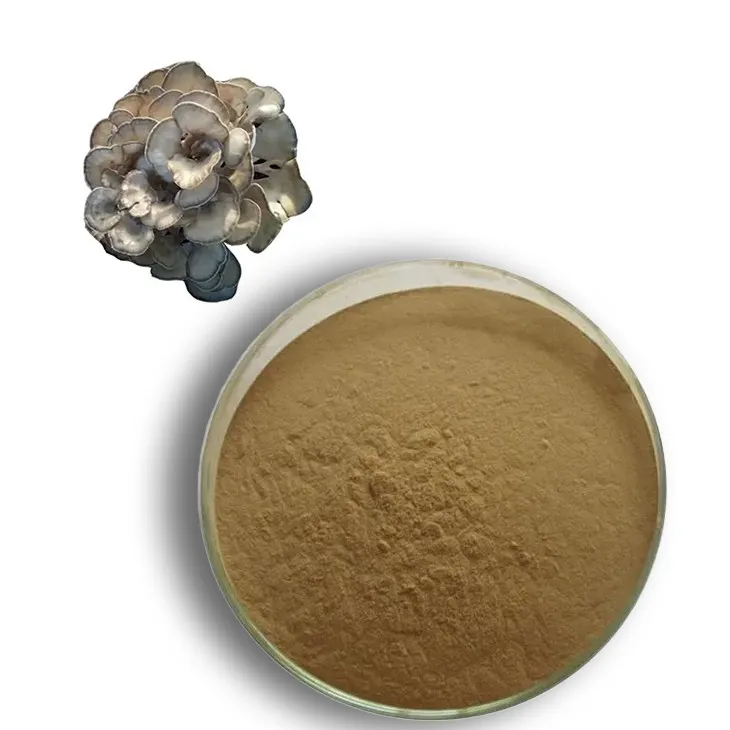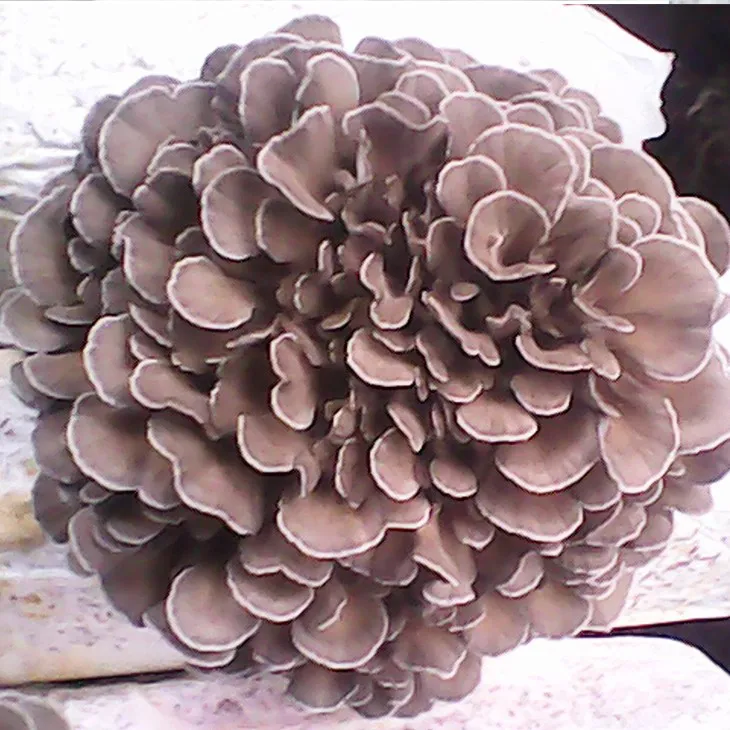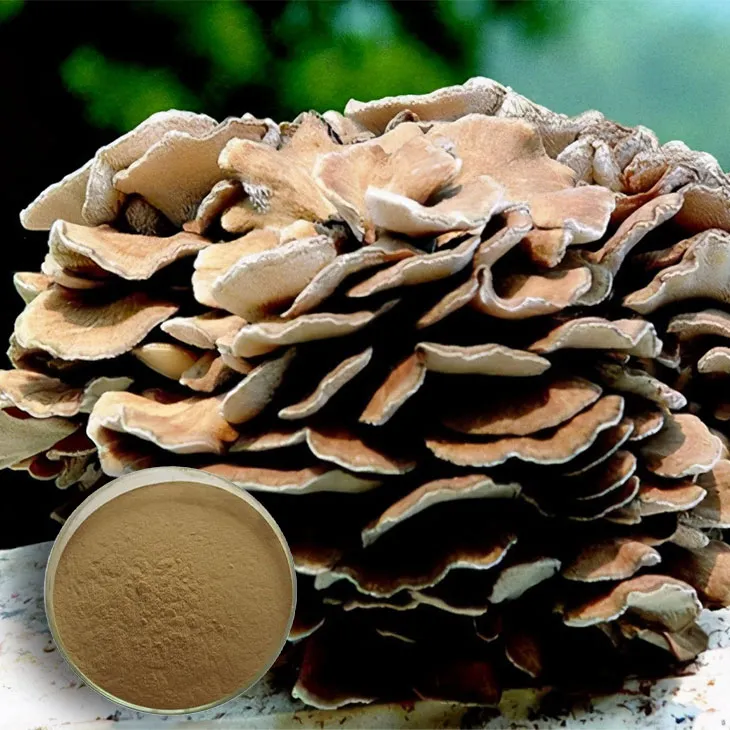- 0086-571-85302990
- sales@greenskybio.com
A Guide to Getting the Most Favorable Price for Unsweetened Maitake Mushroom Extract.
2024-12-18

1. Introduction
Unsweetened Maitake Mushroom Extract has gained significant popularity in recent years due to its potential health benefits. However, obtaining the best deal on this product can be a complex task. This guide aims to provide comprehensive insights into getting the most favorable price for unsweetened Maitake Mushroom Extract.

2. Understanding Market Trends
Supply and Demand Dynamics
The price of unsweetened Maitake Mushroom Extract is greatly influenced by the basic principles of supply and demand. If the demand for this extract suddenly surges, perhaps due to new research highlighting its health benefits, and the supply cannot keep up immediately, the price is likely to increase. Conversely, if there is an oversupply in the market, say, due to a bumper crop of Maitake mushrooms or increased production capacity in extraction facilities, the price may drop.
Seasonal Variations
Maitake mushrooms, like many other fungi, may have seasonal growth patterns. In the peak season of Maitake mushroom harvesting, the raw material cost for the extract may be lower as there is an abundance of mushrooms available. This can potentially lead to lower prices for the extract. However, during off - seasons, the cost of obtaining the mushrooms may rise, and thus the price of the extract may be pushed up.
Industry and Consumer Trends
The overall health and wellness trend in the consumer market also impacts the price of unsweetened Maitake mushroom extract. If consumers are increasingly interested in natural health products and are willing to pay a premium for high - quality extracts, producers may be able to set higher prices. Additionally, trends in related industries, such as the supplement and alternative medicine industries, can also influence the demand and price of Maitake mushroom extract.

3. Comparing Prices across Different Regions and Markets
Domestic vs. International Markets
In the domestic market, prices of unsweetened Maitake mushroom extract may be affected by local production capabilities, regulatory requirements, and consumer preferences. For example, in some countries where Maitake mushrooms are not native and there is a high import tax on the extract, the price may be significantly higher. On the international market, different regions may have distinct cost structures. Some countries may have a large - scale Maitake mushroom cultivation industry, which can lead to lower production costs and potentially lower export prices.
Online vs. Offline Markets
The emergence of online markets has provided consumers with more options to purchase unsweetened Maitake mushroom extract. Online platforms often have a wider range of suppliers, which can lead to more competitive pricing. However, consumers need to be cautious as there may also be counterfeit or low - quality products available. Offline markets, such as health stores and specialty shops, may offer the advantage of in - person product inspection but may have higher overhead costs, which could be reflected in the price.

4. Negotiating with Suppliers
Do Your Research
Before entering into negotiations with suppliers, it is crucial to do your homework. Research the market price range for unsweetened Maitake mushroom extract, the reputation of the supplier, and their cost structure. Knowing the average price in the market gives you a benchmark for negotiation. If you are aware that a supplier has relatively low production costs due to efficient manufacturing processes or access to cheap raw materials, you can use this information to your advantage during negotiations.
Build a Relationship
Establishing a good relationship with the supplier can be beneficial in getting a favorable price. Suppliers are more likely to offer discounts or better terms to long - term customers or those with whom they have a positive relationship. Start by communicating your needs clearly and being reliable in your business dealings. For example, if you are a regular buyer, you can ask for loyalty discounts or volume - based price breaks.
Negotiation Tactics
When negotiating, be confident but also respectful. Present your case clearly, highlighting your purchasing volume, potential for future business, and any unique selling points you may have as a customer. For instance, if you have a large customer base that could potentially be interested in the supplier's other products, you can mention this as an incentive for them to offer you a better price. Be prepared to walk away if the deal is not satisfactory, but also be open to compromise.
5. The Role of Certifications in Price Determination
Quality Certifications
Certifications such as Good Manufacturing Practice (GMP) or Organic certifications can significantly impact the price of unsweetened Maitake mushroom extract. Suppliers who hold these certifications often have to invest in meeting the strict requirements, which can increase their production costs. As a result, products with these certifications may be priced higher. However, for consumers who value quality and safety, these certifications can be an important factor in justifying the higher price.
Food Safety Certifications
Food safety certifications, like Hazard Analysis and Critical Control Points (HACCP), are also relevant. Suppliers with these certifications are likely to have more reliable and consistent product quality. This can lead to a higher price point, but it also provides assurance to the consumers. In some markets, products without proper food safety certifications may not be legally allowed to be sold, so these certifications are not only about quality but also about market access.
6. The Significance of Long - Term Contracts for Lower Prices
Stability for Suppliers
Entering into a long - term contract with a supplier provides stability for them. They can better plan their production, procurement of raw materials, and investment in new technologies. In return for this stability, suppliers are often willing to offer lower prices. For example, if a supplier knows that they have a guaranteed customer for a certain quantity of unsweetened Maitake mushroom extract over the next few years, they can optimize their production processes and reduce costs, which can be passed on to the customer in the form of lower prices.
Benefits for Buyers
For buyers, long - term contracts can also bring several advantages. Firstly, it ensures a stable supply of the product, which is especially important if the extract is an essential ingredient in your business. Secondly, it allows for better price forecasting and budgeting. You can lock in a favorable price and avoid the fluctuations in the market. However, it is important to carefully review the terms of the contract, including any clauses related to price adjustments based on market changes.
7. Conclusion
Getting the most favorable price for unsweetened Maitake mushroom extract requires a comprehensive understanding of market trends, price comparisons across different regions and markets, effective negotiation with suppliers, recognition of the role of certifications, and the consideration of long - term contracts. By following these strategies, consumers and businesses can increase their chances of obtaining high - quality unsweetened Maitake mushroom extract at a price that meets their budgetary requirements.
FAQ:
Question 1: What are the main market trends that affect the price of unsweetened maitake mushroom extract?
Several market trends can influence the price. Firstly, the demand for maitake mushroom extract in the health and wellness industry. If there is a growing trend of using it in supplements or functional foods, the price may increase. Secondly, supply factors such as the availability of maitake mushrooms, which can be affected by weather conditions, farming techniques, and crop yields. Additionally, new research findings about the health benefits of maitake mushroom extract can also impact the price as it may increase the desirability among consumers.
Question 2: How can one effectively compare prices of unsweetened maitake mushroom extract across different regions and markets?
To compare prices effectively, start by researching online marketplaces that deal with health food ingredients. Look for specialized suppliers in different regions. Consider the currency exchange rates as they can significantly affect the final price. Also, take into account the shipping costs and any import/export duties or taxes. Contact local and international suppliers directly to get price quotes and ask about any bulk purchase discounts. Analyze the quality of the product offered in different regions as sometimes a lower price may be associated with inferior quality.
Question 3: What are the key points to remember when negotiating with suppliers for unsweetened maitake mushroom extract?
When negotiating with suppliers, first, do your research on the market price range so you have a good understanding of what is reasonable. Mention any competing offers you have received. If you are planning a large - scale or long - term purchase, use this as leverage. Be clear about your quality requirements and ask if the supplier can meet them. Inquire about any possible additional costs such as packaging or delivery fees. Build a good relationship with the supplier by being professional and respectful throughout the negotiation process.
Question 4: How do certifications play a role in determining the price of unsweetened maitake mushroom extract?
Certifications can have a significant impact on price. For example, if the maitake mushroom extract has organic certifications, it often commands a higher price as it indicates that the mushrooms were grown without synthetic pesticides or fertilizers. Quality certifications such as GMP (Good Manufacturing Practice) can also increase the price as they assure the buyer of a certain standard of production. Certifications related to the authenticity and purity of the extract can give consumers more confidence, and suppliers may price their products accordingly.
Question 5: Why are long - term contracts beneficial for getting a lower price on unsweetened maitake mushroom extract?
Long - term contracts are beneficial for several reasons. Suppliers are more likely to offer lower prices for long - term contracts as it provides them with a stable source of income. It also allows them to better plan their production and inventory management. For the buyer, it can ensure a consistent supply of the unsweetened maitake mushroom extract at a fixed, potentially lower price. Additionally, long - term contracts can lead to a more collaborative relationship between the buyer and the supplier, which may result in other benefits such as priority in case of supply shortages or access to new product developments.
Related literature
- The Market Dynamics of Mushroom - Based Extracts"
- "Price Determination Factors in the Health Ingredient Market"
- "Certifications and Their Impact on the Value of Functional Food Ingredients"
- ▶ Hesperidin
- ▶ citrus bioflavonoids
- ▶ plant extract
- ▶ lycopene
- ▶ Diosmin
- ▶ Grape seed extract
- ▶ Sea buckthorn Juice Powder
- ▶ Beetroot powder
- ▶ Hops Extract
- ▶ Artichoke Extract
- ▶ Reishi mushroom extract
- ▶ Astaxanthin
- ▶ Green Tea Extract
- ▶ Curcumin Extract
- ▶ Horse Chestnut Extract
- ▶ Other Problems
- ▶ Boswellia Serrata Extract
- ▶ Resveratrol Extract
- ▶ Marigold Extract
- ▶ Grape Leaf Extract
- ▶ blog3
- ▶ blog4
- ▶ blog5
-
Pure 85% Tomentil Extract.
2024-12-18
-
Natural grape seed extract
2024-12-18
-
Fig Extract
2024-12-18
-
Polygonum Cuspidatum Extract
2024-12-18
-
Mulberry Extract
2024-12-18
-
Eucommia Ulmoides Extract
2024-12-18
-
Red Vine Extract
2024-12-18
-
Propolis Extract Powder
2024-12-18
-
White Willow Bark Extract
2024-12-18
-
Aminolevulinic acid
2024-12-18
-
Longan Extract
2024-12-18





















